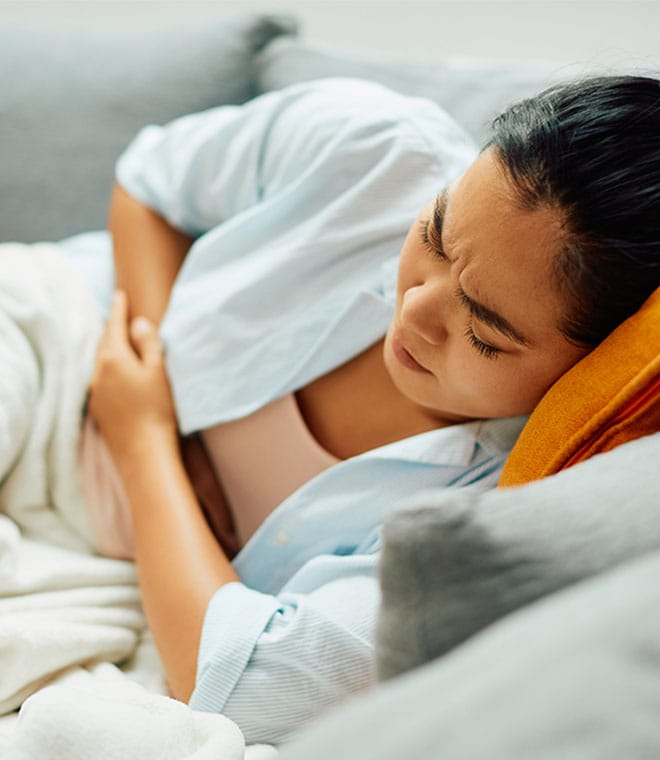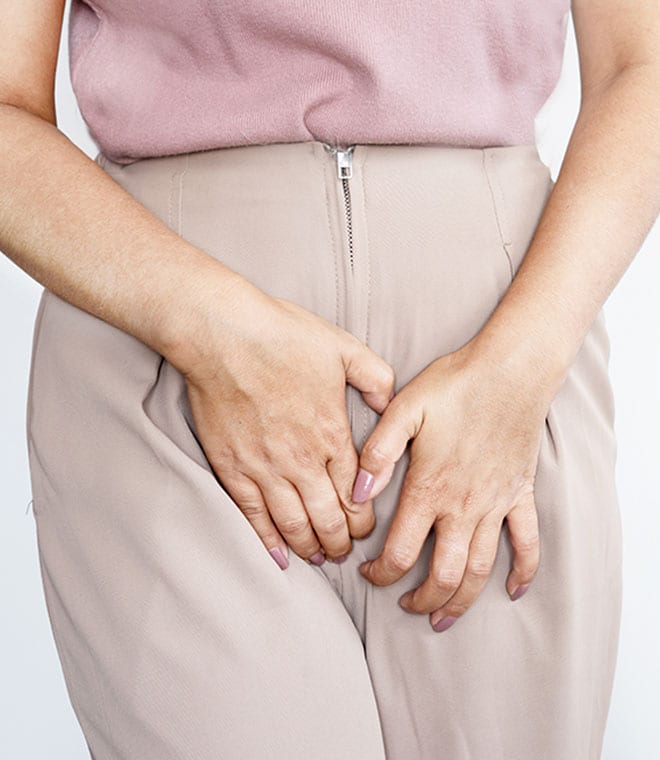Health
Vaginal burning after sex: Causes and treatment
By Patricia Ann Convery, MD, Fellow, American College of Obstetrics and Gynecology Jul 26, 2024 • 7 min
Experiencing a burning sensation during intercourse or afterward is a common problem with a variety of potential causes. The only way to know for sure why you have discomfort after intercourse or during sex is to get a diagnosis from your healthcare provider.
Causes of and treatments for vaginal burning after intercourse
The potential causes of vaginal burning during penetration and after sex range from minor issues that are likely to resolve on their own, to conditions that require treatment from a healthcare provider. These include:
1. Irritation: When there’s irritation of the skin on the vulva and the lining inside the vagina, this can lead to both pain and vaginal itching after intercourse. Sensitivities to spermicide condoms or warming and cooling ingredients found in some lubricants can be common causes of irritation.
Typically, irritation will subside on its own without treatment. Switching to a water-based, fragrance-free lubricant and/or non-spermicide latex condoms may reduce the risk of discomfort recurring.
2. Vaginal yeast infections: A burning sensation in the vagina and/or vulvar area is one of the most common symptoms of a yeast infection caused by an overgrowth of the fungus candida in the vagina. Other signs of a yeast infection include:
- Vaginal and vulvar itching
- Thick white discharge that resembles cottage cheese
- Redness and swelling of the vulva
- Burning during urination
In some cases, women can treat vaginal yeast infections with over-the-counter topical antifungal medications. Prescription topical or oral antifungals may be necessary for some women. Yeast infection symptoms can mimic other vaginal health conditions, so it’s best to be seen by a healthcare provider to determine the cause.
3. Bacterial vaginosis: An infection that occurs due to an imbalance of good and bad bacteria in the vagina, bacterial vaginosis (BV) can cause burning during sex and when urinating. Other symptoms include a fishy vaginal odor, itching, and a gray, green or white vaginal discharge. Healthcare providers typically prescribe antibiotics to treat BV.
4. Vaginal dryness: When the body doesn’t produce enough natural lubricant, vaginal dryness may occur, causing symptoms like burning during and after sex, and vulvar and vaginal soreness after intercourse. Common causes of vaginal dryness include:
- Hormonal changes related to menopause
- Breastfeeding
- Hormonal contraceptives, such as birth control pills
- Diabetes
- Certain medications
- Lack of sexual arousal
Depending on the cause of vaginal dryness, healthcare providers may recommend the use of vaginal lubricants and moisturizers. They may also prescribe oral medications or topical estrogen products to treat the condition.
5. Vaginal atrophy: Most common during perimenopause and menopause, vaginal atrophy occurs when hormonal changes cause the lining of the vagina to become thinner and dryer. Vaginal burning and itching during intercourse is one of the most common symptoms of the condition, which may also cause:
- Yellow vaginal discharge
- Spotting or bleeding, particularly after sex
- Frequent urinary tract infections (UTIs)
- Urinary incontinence
Treatments for vaginal atrophy are similar to those for vaginal dryness and may include vaginal moisturizers and lubricants, as well as topical estrogen products. Healthcare providers may also prescribe hormone replacement therapy (HRT) medications in some cases.
6. Sexually transmitted infections (STIs): Chlamydia, gonorrhea, genital warts, herpes and other STIs may cause pain or a burning sensation during intercourse. Pelvic inflammatory disease (PID) that develops due to some STIs may also cause pain during and after sex.
Other symptoms of STIs vary. Depending on the type of infection, healthcare providers may prescribe antibiotics or antiviral medications to treat or manage the symptoms of STIs.
7. Vaginismus: For some women, pain during intercourse may be due to vaginismus, a condition where the muscles surrounding the vagina contract involuntarily. Vaginismus may also lead to pain when objects are inserted into the vagina, such as tampons or medical instruments during pelvic exams.
Healthcare providers don’t fully understand what causes vaginismus, but anxiety disorders, childbirth injuries, prior surgery and trauma related to sexual abuse may play a role. Treatment for the condition may involve cognitive behavioral therapy (CBT), physical therapy, sex therapy, topical anesthetics and other interventions.
8. Vulvodynia: Another potential cause of burning and pain with intercourse is vulvodynia, chronic vaginal discomfort that has no apparent cause. Healthcare providers may diagnose a woman with this condition if she has pain for three months or more and exams and tests reveal no underlying cause for the symptoms.
Pain from vulvodynia may feel like burning, stabbing, stinging or throbbing. Discomfort may occur during or after intercourse. It may also occur with other activities, such as exercising, walking, sitting or inserting a tampon.
As with vaginismus, vulvodynia isn’t fully understood. Inflammation, hormones, genetics and other factors may contribute to the condition. Treatments for vulvodynia include topical anesthetics, hormone creams, oral medications, nerve block injections, physical therapy and other interventions.
Why does it burn when I pee after intercourse?
Burning urination after intercourse is often due to skin irritation around the urethra. However, burning urination may also be caused by UTIs, yeast infections, BV, STIs, vaginal atrophy and other medical conditions. If you continue to experience burning during urination, talk to your healthcare provider.
Published July 2024.
References:
- https://www.mayoclinic.org/diseases-conditions/bacterial-vaginosis/diagnosis-treatment/drc-20352285
- https://my.clevelandclinic.org/health/diseases/12325-dyspareunia-painful-intercourse
- https://health.clevelandclinic.org/peeing-after-sex
- https://my.clevelandclinic.org/health/diseases/10857-endometriosis
- https://my.clevelandclinic.org/health/diseases/9133-ovarian-cysts
- https://www.mayoclinic.org/diseases-conditions/sexually-transmitted-diseases-stds/diagnosis-treatment/drc-20351246
- https://my.clevelandclinic.org/health/diseases/17878-vulvodynia
- https://my.clevelandclinic.org/health/diseases/15500-vaginal-atrophy
- https://my.clevelandclinic.org/health/symptoms/21027-vaginal-dryness
- https://my.clevelandclinic.org/health/diseases/5019-vaginal-yeast-infection
- https://my.clevelandclinic.org/health/diseases/15723-vaginismus
- https://sncs-prod-external.mayo.edu/hometown-health/speaking-of-health/womens-sexual-health-when-being-intimate-hurts




